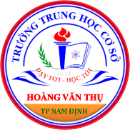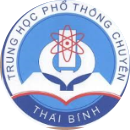Children are encouraged to take an (investigate) _______ approach to learning.

Những câu hỏi liên quan
Learning English grammar for children in general and 5th grade English grammar in particular, children need to have access to the standard flow of knowledge to avoid unfortunate mistakes. Currently learning English for children at Alokiddy is one of the optimal options for children learning English. At Alokiddy, English lessons are standardized according to Cambridge English for children according to the common European standards. With this English learning program for children, students will ha...
Đọc tiếp
Learning English grammar for children in general and 5th grade English grammar in particular, children need to have access to the standard flow of knowledge to avoid unfortunate mistakes. Currently learning English for children at Alokiddy is one of the optimal options for children learning English. At Alokiddy, English lessons are standardized according to Cambridge English for children according to the common European standards. With this English learning program for children, students will have access to global English and gradually gain an international English certificate right from the most basic elementary English learning steps. You can let them learn English at Alokiddy to experience these great English lessons!
( Lưu ý đoạn văn này mk viết ai dịch đi mk k cho )
mk lớp 5 nha các bạn
Học ngữ pháp tiếng Anh trẻ em nói chung và ngữ pháp tiếng Anh lớp 5 nói riêng, các em cần được tiếp cận với luồng kiến thức chuẩn để tránh những sai lầm đáng tiếc. Học tiếng Anh trẻ em hiện nay tại Alokiddy là một trong những lựa chọn tối ưu cho việc học tiếng Anh trẻ em. Tại Alokiddy, các bài học tiếng Anh được chuẩn hóa theo chuẩn Cambridge English cho trẻ em theo tiêu chuẩn chung của Châu Âu. Với chương trình học tiếng Anh cho trẻ em này, học sinh sẽ được tiếp cận với tiếng Anh toàn cầu và dần đạt được chứng chỉ tiếng Anh quốc tế ngay từ những bước học tiếng Anh tiểu học cơ bản nhất. Bạn có thể cho bé học tiếng Anh tại Alokiddy để trải nghiệm những bài học tiếng Anh tuyệt vời này nhé!
lên google dịch ko chấp nhận
Xem thêm câu trả lời
People are encouraged to take bottles to bottle-banks, and only shops in supermarkets which use ______ packing.
A. environment-friendly
B. environmental-friendly
C. environmentally-friendly
D. friendly-environment
Đáp án A
environment-friendly (adj): thân thiện với môi trường
= environmentally friendly.
Dịch: Con người được khuyến khích đưa những vỏ chai lọ tới ngân hàng vỏ chai, và những shop trong siêu thị nên sử dụng bao bì thân thiện với môi trường
Đúng 0
Bình luận (0)
Find the mistake and correct
1.why are they encouraged to learning English?
2.I prefered comics in my free time
3.for some people,training pets are hard work
1.why are they encouraged to learning => learn English?
2.I prefered => prefer (?) comics in my free time
3.for some people,training pets are => is hard work
Đúng 2
Bình luận (0)
1. learning -> learn
2. prefered -> prefer
3. are -> is
Đúng 1
Bình luận (0)
`1`. learning `->` learn.
`2`. prefered `->` prefer.
`3`. are `->` is.
Đúng 1
Bình luận (0)
11. Would you mind to open the window? 12. Why are they encouraged to learning English? 13. I preferred read comics in my free time. 14. Mai enjoys to make crafts, especially cloth dolls. 15. For some people, training pets are hard work.
Đọc tiếp
11. Would you mind to open the window?
12. Why are they encouraged to learning English?
13. I preferred read comics in my free time.
14. Mai enjoys to make crafts, especially cloth dolls.
15. For some people, training pets are hard work.
11. to open ⇒ opening
12. learning ⇒ learn
13. comics ⇒ reading comics
14. make ⇒ making
15.are ⇒ is
tick coi
Đúng 3
Bình luận (1)
Tham Khảo
11. to open ⇒ opening
12. learning ⇒ learn
13. comics ⇒ reading comics
14. make ⇒ making
15.are ⇒ is
Đúng 2
Bình luận (1)
Read the following passage and mark the letter A, B, C, or D to indicate the correct answer to each of the questions from 43 to 50. It is commonly believed in the United States that school is where people go to get an education. Nevertheless, it has been said that today children interrupt their education to go to school. The distinction between schooling and education implied by this remark is important Education is much more open-ended and all-inclusive than schooling. Educati...
Đọc tiếp
Read the following passage and mark the letter A, B, C, or D to indicate the correct answer to each of the questions from 43 to 50.
It is commonly believed in the United States that school is where people go to get an education. Nevertheless, it has been said that today children interrupt their education to go to school. The distinction between schooling and education implied by this remark is important
Education is much more open-ended and all-inclusive than schooling. Education knows no bounds. It can take place anywhere, whether in the shower or on the job, whether in a kitchen or on a tractor. It includes both the formal learning that takes place in schools and the whole universe of informal learning. The agents of education can range from a revered grandparent to the people debating politics on the radio, from a child to a distinguished scientist.Whereas schooling has a certain predictability, education quite often produces surprises. A chance conversation with a stranger may lead a person to discover how little is known of other religions. People are engaged in education in infancy. Education, then, is a very broad, inclusive term. It is a lifelong process, a process that starts long before the start of school, and one that should be an integral part of one's entire life.
Schooling, on the other hand, is a specific, formalized process, whose general pattern varies little from one setting to the next. Throughout a country, children arrive at school at approximately the same time, take assigned seats, are taught by an adult, use similar textbooks, do homework, take exams, and so on. The slices of reality that are to be learned, whether they are the alphabet or an understanding of the workings of government, have usually been limited by the boundaries of the subjects being taught. For example, high school students know that they are not likely to find out in their classes the truth about political problems in their communities or what the newest filmmakers are experimenting with. There are definite conditions surrounding the formalized process of schooling.
What does the author probably mean by using the expression “children interrupt their education to go to school” in paragraph 1?
A. Going to several different schools is educationally beneficial.
B. School vacations interrupt the continuity of the school year.
C. Summer school makes the school year too long.
D. All of people's life is an education.
Đáp án D
Tác giả có ý gì khi sử dụng cụm từ “ trẻ em tạm ngừng việc học để đi tới trường”?
A. tới học một vài trường khác nhau sẽ có lợi về mặt giáo dục.
B. các kì nghỉ ở trường làm gián đoạn năm học.
C. kì học hè khiến cho năm học kéo quá dài.
D. học là chuyện cả đời.
Cần phải đọc qua ý của toàn bộ bài và quay lại ý trên mới hiểu rõ được ngụ ý của tác giả. Tác giả cũng có nói ở đoạn sau: “It is a lifelong process, a process that starts long before the start of school, and one that should be an integral part of one's entire life”- (Đó (education- giáo dục/việc học nói chung) là 1 quá trình dài, 1 quá trình mà nó bắt đầu từ rất lâu trước khi ta bắt đầu tới trường, và nên là 1 phần không thể thiếu trong cuộc đời mỗi con người).
Như vậy ngụ ý “children interrupt their education to go to school” chính là để ám chỉ việc tới trường chỉ là 1 phần nhỏ trong đời người, việc học mới là theo ta suốt cả cuộc đời.
Đúng 0
Bình luận (0)
Read the following passage and mark the letter A, B, C, or D to indicate the correct answer to each of the questions from 43 to 50.It is commonly believed in the United States that school is where people go to get an education. Nevertheless, it has been said that today children interrupt their education to go to school. The distinction between schooling and education implied by this remark is important.Education is much more open-ended and all-inclusive than schooling. Education knows no bounds....
Đọc tiếp
Read the following passage and mark the letter A, B, C, or D to indicate the correct answer to each of the questions from 43 to 50.
It is commonly believed in the United States that school is where people go to get an education. Nevertheless, it has been said that today children interrupt their education to go to school. The distinction between schooling and education implied by this remark is important.
Education is much more open-ended and all-inclusive than schooling. Education knows no bounds. It can take place anywhere, whether in the shower or on the job, whether in a kitchen or on a tractor. It includes both the formal learning that takes place in schools and the whole universe of informal learning. The agents of education can range from a revered grandparent to the people debating politics on the radio, from a child to a distinguished scientist. Whereas schooling has a certain predictability, education quite often produces surprises. A chance conversation with a stranger may lead a person to discover how little is known of other religions. People are engaged in education in infancy. Education, then, is a very broad, inclusive term. It is a lifelong process, a process that starts long before the start of school, and one that should be an integral part of one's entire life.
Schooling, on the other hand, is a specific, formalized process, whose general pattern varies little from one setting to the next. Throughout a country, children arrive at school at approximately the same time, take assigned seats, are taught by an adult, use similar textbooks, do homework, take exams, and so on. The slices of reality that are to be learned, whether they are the alphabet or an understanding of the workings of government, have usually been limited by the boundaries of the subjects being taught. For example, high school students know that they are not likely to find out in their classes the truth about political problems in their communities or what the newest filmmakers are experimenting with. There are definite conditions surrounding the formalized process of schooling.
Question 44. What does the author probably mean by using the expression “children interrupt their education to go to school” in paragraph 1?
A. Going to several different schools is educationally beneficial.
B. School vacations interrupt the continuity of the school year.
C. Summer school makes the school year too long.
D. All of people’s life is an education.
Read the following passage and mark the letter A, B, C or D to indicate the correct answer to each of the questions from 36 to 42. It is commonly believed in the United States that school is where people go to get an education. Nevertheless, it has been said that today children interrupt their education to go to school. The distinction between schooling and education implied by this remark is important. Education is much more open-ended and all-inclusive than schooling. Education knows no bounds...
Đọc tiếp
Read the following passage and mark the letter A, B, C or D to indicate the correct answer to each of the questions from 36 to 42.
It is commonly believed in the United States that school is where people go to get an education. Nevertheless, it has been said that today children interrupt their education to go to school. The distinction between schooling and education implied by this remark is important.
Education is much more open-ended and all-inclusive than schooling. Education knows no bounds. It can take place anywhere, whether in the shower or on the job, whether in a kitchen or on a tractor. It includes both the formal learning that takes place in schools and the whole universe of informal learning. The agents of education can range from a revered grandparent to the people debating politics on the radio, from a child to a distinguished scientist. Whereas schooling has a certain predictability, education quite often produces surprises. A chance conversation with a stranger may lead a person to discover how little is known of other religions. People are engaged in education from infancy on. Education, then, is a very broad, inclusive term. It is a lifelong process, a process that starts long before the start of school and one that should be an integral part of one's entire life.
Schooling, on the other hand, is a specific, formalized process, whose general pattern varies little from one setting to the next. Throughout a country, children arrive at school at approximately the same time, take assigned seats, are taught by an adult, use similar textbooks, do homework, take exams, and so on. The slices of reality that are to be learned, whether they are the alphabet or an understanding of the workings of government, have usually been limited by the boundaries of the subject being taught. For example, high school students know that they are not likely to find out in their classes the truth about political problems in their communities or what the newest filmmakers are experimenting with. There are definite conditions surrounding the formalized process of schooling.
Question 36: What does the author probably mean by using the expression "children interrupt their education to go to school"?
A. Going to several different schools is educationally beneficial.
B. School vacations interrupt the continuity of the school year.
C. Summer school makes the school year too long.
D. All of life is an education.
Đáp án D
Dịch bài: Khi tác giả nói “trẻ em gián đoạn việc giáo dục để đến trường” thì tác giả có thể muốn nói gì?
A. Học các trường khác nhau rất có lợi về giáo dục.
B. Các đờt nghỉ hè gây gián đoạn sự liên tục của năm học.
C. Học hè khiến cho năm học quá dài.
D. Cả cuộc đời là giáo dục.
Đúng 0
Bình luận (0)
Read the following passage and mark the letter A, B, C or D to indicate the correct answer to each of the questions from 36 to 42.It is commonly believed in the United States that school is where people go to get an education. Nevertheless, it has been said that today children interrupt their education to go to school. The distinction between schooling and education implied by this remark is important.Education is much more open-ended and all-inclusive than schooling. Education knows no bounds....
Đọc tiếp
Read the following passage and mark the letter A, B, C or D to indicate the correct answer to each of the questions from 36 to 42.
It is commonly believed in the United States that school is where people go to get an education. Nevertheless, it has been said that today children interrupt their education to go to school. The distinction between schooling and education implied by this remark is important.
Education is much more open-ended and all-inclusive than schooling. Education knows no bounds. It can take place anywhere, whether in the shower or on the job, whether in a kitchen or on a tractor. It includes both the formal learning that takes place in schools and the whole universe of informal learning. The agents of education can range from a revered grandparent to the people debating politics on the radio, from a child to a distinguished scientist. Whereas schooling has a certain predictability, education quite often produces surprises. A chance conversation with a stranger may lead a person to discover how little is known of other religions. People are engaged in education from infancy on. Education, then, is a very broad, inclusive term. It is a lifelong process, a process that starts long before the start of school and one that should be an integral part of one's entire life.
Schooling, on the other hand, is a specific, formalized process, whose general pattern varies little from one setting to the next. Throughout a country, children arrive at school at approximately the same time, take assigned seats, are taught by an adult, use similar textbooks, do homework, take exams, and so on. The slices of reality that are to be learned, whether they are the alphabet or an understanding of the workings of government, have usually been limited by the boundaries of the subject being taught. For example, high school students know that they are not likely to find out in their classes the truth about political problems in their communities or what the newest filmmakers are experimenting with. There are definite conditions surrounding the formalized process of schooling
What does the author probably mean by using the expression "children interrupt their education to go to school"?
A. Going to several different schools is educationally beneficial
B. School vacations interrupt the continuity of the school year
C. Summer school makes the school year too long
D. All of life is an education
Đáp án D
Dịch bài: Khi tác giả nói “trẻ em gián đoạn việc giáo dục để đến trường” thì tác giả có thể muốn nói gì?
A. Học các trường khác nhau rất có lợi về giáo dục.
B. Các đờt nghỉ hè gây gián đoạn sự liên tục của năm học.
C. Học hè khiến cho năm học quá dài.
D. Cả cuộc đời là giáo dục
Đúng 0
Bình luận (0)
II. Khoanh tròn một câu được sắp xếp đúng (A,B,C,D) dựa vào các từ đã cho.
72. far / it / from / the / to / How / is / earth / the / moon ?
A. How far is it from the moon to the earth ?
B. How far it is from the moon to the earth ?
C. A&B are correct.
D. A&B are incorrect.
73. The / football / children / now / are / in / the / playing / school yard.
A. The children playing football in the school yard now.
B. The children are playing football in the school yard now.
C. The children are playing f...
Đọc tiếp
II. Khoanh tròn một câu được sắp xếp đúng (A,B,C,D) dựa vào các từ đã cho.
72. far / it / from / the / to / How / is / earth / the / moon ?
A. How far is it from the moon to the earth ?
B. How far it is from the moon to the earth ?
C. A&B are correct.
D. A&B are incorrect.
73. The / football / children / now / are / in / the / playing / school yard.
A. The children playing football in the school yard now.
B. The children are playing football in the school yard now.
C. The children are playing football in school yard now.
D. The children are play football in the school yard now.
74. with / me / the / cinema / go / to / you / to / like / Would ?
A. Would you like to go to the cinema with me ?
B. Would you like go to the cinema with me ?
C. Would you like to go to cinema with me ?
D. Would like you to go to the cinema with me ?
75. very / this / in / the / are / exercises / difficult / book.
A. The exercises in this book are very difficult.
B. This exercises in the book are very difficult.
C. The book in this exercises are very difficult.
D. This exercises are in the book very difficult.
76. dinner / like / come / would / to / to / you / house / for / my ?
A. Would you like to come for dinner to my house?
B. Would you like to come to my house for dinner ?
C. Would like you to come to my house for dinner ?
D. A&B are correct.
77. after / does / ice-cream / eat / an / he / cake / or / dinner / a ?
A. Does he eat an ice-cream or a cake after dinner ?
B. Does he eat a cake or an ice-cream after dinner ?
C. A&B are correct.
D. A&B are incorrect.
78. flowers / who / beautiful / brings / her / often / to ?
A. Who brings often beautiful flowers to her ?
B. Who often brings beautiful flowers to her ?
C. Who often brings to her beautiful flowers ?
D. Who brings often to her beautiful flowers ?
79. free / likes / son / my / watching / first / in / cartoons / time / his.
A. My first son likes watching cartoons in his free time.
B. My first son like watching cartoons in his free time.
C. My first son likes to watching cartoons in his free time.
D. My first son likes to watch cartoons in his free time.
80. a / an / learning / spends / day / hour / he / English.
A. He spend an hour learning English a day.
B. A day, he spends an hour learning English .
C. He spends an hour learning English a day.
D. B&C are correct
làm rồi giải thích cho mình nha cảm ơn các bạn rất ratts rất rất nhiều
nhăbs voeis mình


















